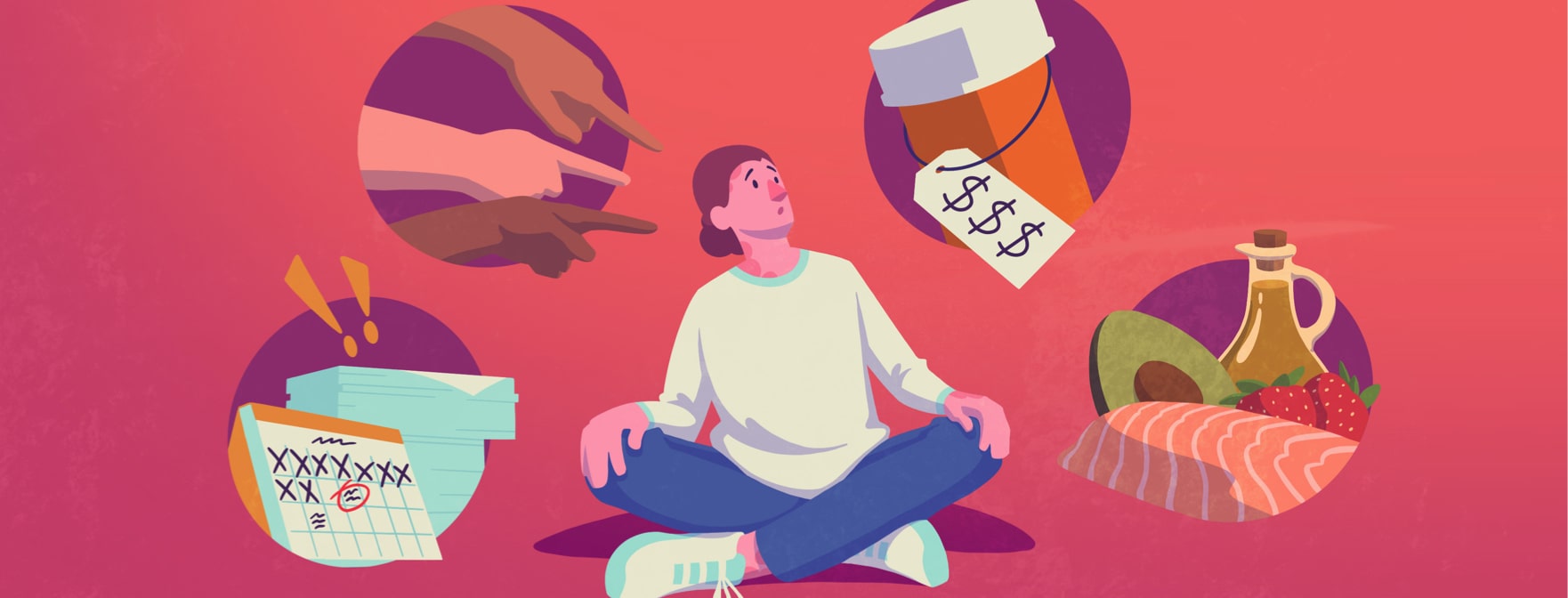Community Views: Newly Diagnosed and Treatment Advice
There is so much to learn when you receive a psoriasis diagnosis. You're presented with an overwhelming amount of treatment options, new words like "topicals" and "inflammation" are thrown at you, your skin feels like it's on fire and you're emotionally processing a disease that has no cure.
From there, you're asked to make a future doctor's appointment not knowing what your life (or skin) is going to look like in the next 4-6 months. It's enough stress to trigger you into a new flare (trigger and flare are new concepts for you to learn too!)
Looking for advice for psoriasis management?
Simply put, psoriasis is an annoying condition. Its symptoms are frustrating to manage and there is a lot to process, grow and learn from. That first month alone - there is so much knowledge being taken in. Real time learning is happening - and the more time between diagnosis and life - hindsight is always 20/20.
To help those just beginning their psoriasis journey, folks in the PlaquePsoriasis.com Facebook community answered these questions: “What do you wish you had known about psoriasis treatment when you were first diagnosed? What advice would you give someone now?”. Let's see what advice they have to offer...
Stress
One of the most common triggers that respondents mentioned was stress. Stress complicates life with psoriasis. Flares and pain can intensify during periods of stress. Using stress-management tools helps many in the community manage their symptoms.
- “That [a flare] probably could have been avoided if you made better choices and not let stress get to you. At a very young age, I was told that stress would make me sick. Well, it did.”
- “Stress is probably the biggest factor in determining how intense the effects are on the skin and bones.”
- “I really wish someone would have told me that it was possible to get ahead of it or make it more manageable with lifestyle changes/mindfulness. My 20s were very stressful, and at one point, I was 90 percent covered.”
Dietary changes
Some people in the community have found that making dietary changes may reduce flares. For them, choosing anti-inflammatory foods seems to improve psoriasis symptoms. Several respondents shared how changing their diet affected their condition.
- “Eat more fruits, vegetables, fish, and chicken, less red meat, and processed foods. Sugars and starches, beer and wine all in moderation.”
- “Since I’ve been extra mindful about what I eat, I’ve absolutely noticed a difference.”
Treatment challenges
Some respondents have struggled to find treatments that work for them. Psoriasis treatments can come with side effects and other health concerns. And while finding an effective treatment takes time, the cost of prescription and over-the-counter options adds up.
- “I wish I had known prednisone would make my blood sugar skyrocket and make me diabetic.”
- “There’s no treatment for psoriasis that is cheap. Let alone without detrimental side effects.”
Lack of understanding
People who do not have psoriasis often do not understand it. Unfortunately, this ignorance can sometimes lead to meanness. Some respondents reported being shamed for how their skin looks. They now feel self-conscious about their plaques, and they cover their bodies to avoid rude comments and looks.
- “Cover up. Hide. People are rude.”
- “I wear long pants and long sleeve shirts no matter how hot.”
Different priorities
Life changes after a psoriasis diagnosis. Psoriasis outbreaks may ebb and flow, but the disease never goes away. Managing symptoms as well as possible becomes a top priority. In this process, tending to physical and emotional exhaustion is vital. Respondents shared some of the ways psoriasis affects their lives.
- “There is no cure; you can only treat the symptoms. Flare-ups happen. The list is long.”
- “Do everything you can now because it may get worse until the pain is so great that you may not be able to do what you wanted to do! It changes your life over time!”
- “It’s such a physically and emotionally overwhelming experience.”

Join the conversation